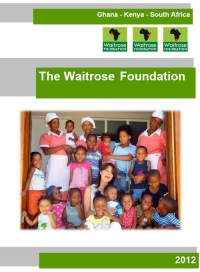The Waitrose Foundation South Africa

Waitrose Foundation South Africa
There are many reasons as to why the Waitrose Foundation has become such an important example of social development and upliftment within the rural sector in South Africa and there are also many reasons as to why it continues to thrive and develop.
These reasons range from the innovative concept, to the incredible energy and passion which is the Foundation team on the ground.
Due to the history of South Africa, rural areas are still underdeveloped and people living in these areas are often far removed from resources. Since the advent of democracy, many changes have taken place and many opportunities have been created, but these communities still have no way of accessing them and they also often lack the basic skills required to find out what is available.
The ‘bottom-up’ process of distributing Foundation funding to meet the needs of the farm workers coincides with the South African Government’s Agri BEE (Black Economic Empowerment) Policy, where the goal is to have 30% of land owned by black South Africans by 2014.
The South African Government has recognized that before land transfer can take place, workers must be empowered and given skills that will allow them to take more economic responsibility in the future. There are two distinct stages to the Foundation programme. The first stage works to address social issues and aims to ensure the transfer of essential skills and knowledge to workers, through methods such as education programmes. The second stage will ultimately involve the ownership of land by farm workers, whereby Foundation grants will be used to buy land to be held in trust on behalf of the farm workers.
So far, over £4.5m has been raised funding more than 300 projects and benefitting over 50,000 farm workers and their families in South Africa.
Project categories include
Training centres
Adult Basic Education & Training (ABET) has made big changes as people in the communities can now read and write and there are now 16 farms fully equipped with learning facilities benefiting students of all ages in literacy and numeracy.
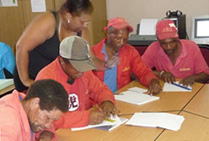
Crèches
The provision of a safe place where children can stay whilst their parents work has made a crèche a top choice on many farms. Crèches, however, by the provision of teachers, visual aids and nutritious food offer more than just a place to leave children.
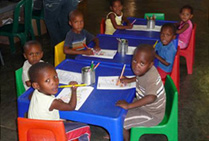
Media and aftercare centres
So far there are 12 media and aftercare centres offering computer orientation skills, school project work and general academic support.
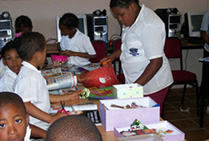
Healthcare
There are now many healthcare projects across the farms, including a mobile clinic, as access to primary healthcare is often an issue on farms. Hospitals in nearby towns are normally very full, and seasonally employed people waiting for treatment can lose a whole day’s wage. In addition, the costs of seeing a doctor can be unaffordable.
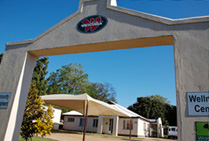
Income generation
Due to seasonality of employment, income generating projects are a very important source of income for many workers in South Africa. Income generating projects range from vegetable gardens, leatherwork, beadwork, sewing and glass recycling (turning recycled glass into glasswork products for re-sale).
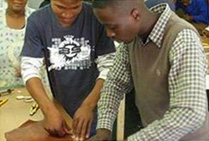
Recreation
The Foundation has funded the equipping and refurbishment of 23 community centres. There are 14 sports projects including soccer fields, rugby fields, netball courts, karate and a squash development programme, as well as communal games. Sporting events like sports days are a big initiative on farms.

For more information on the Waitrose Foundation South Africa please visit www.waitrosefoundation.org.za (this link opens in a new window).
Waitrose Foundation Products
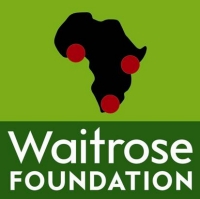
By buying products with the Waitrose Foundation logo you are helping to fund community projects chosen by farm workers and smallholders who grow and prepare our produce in South Africa, Kenya and Ghana.
